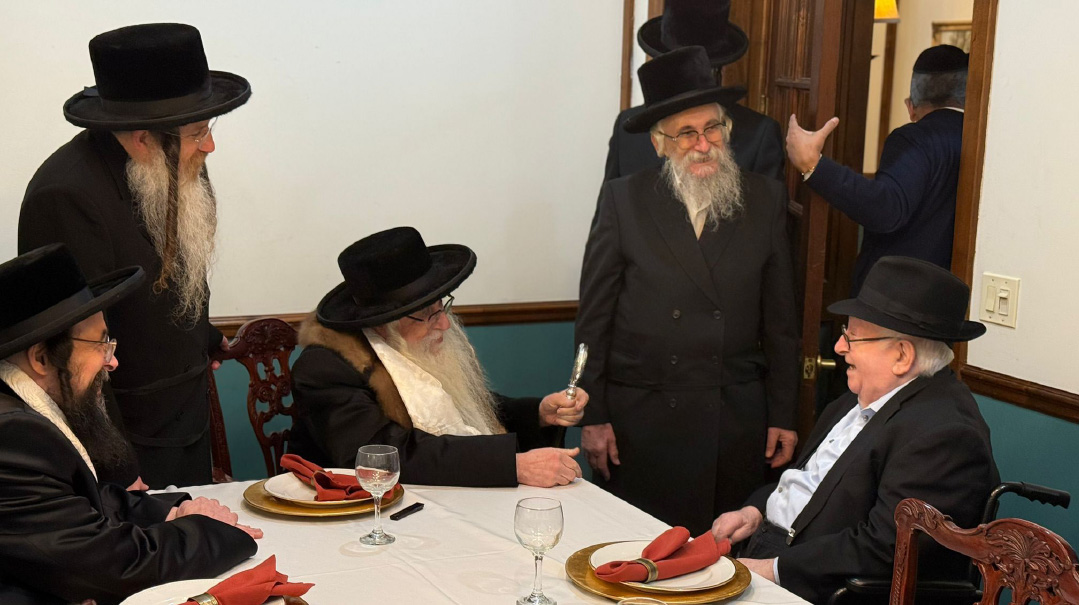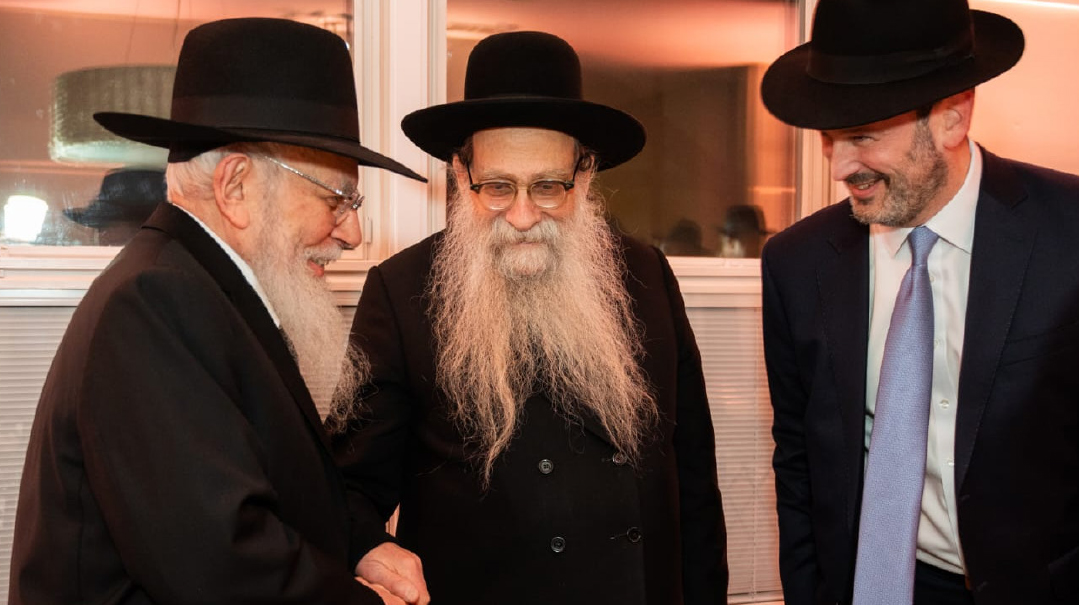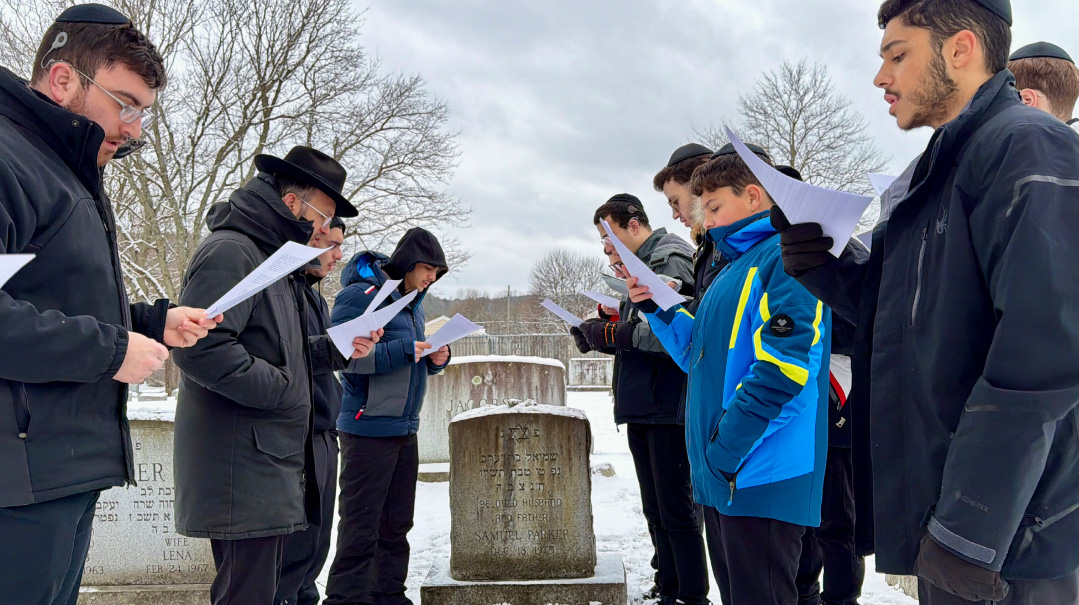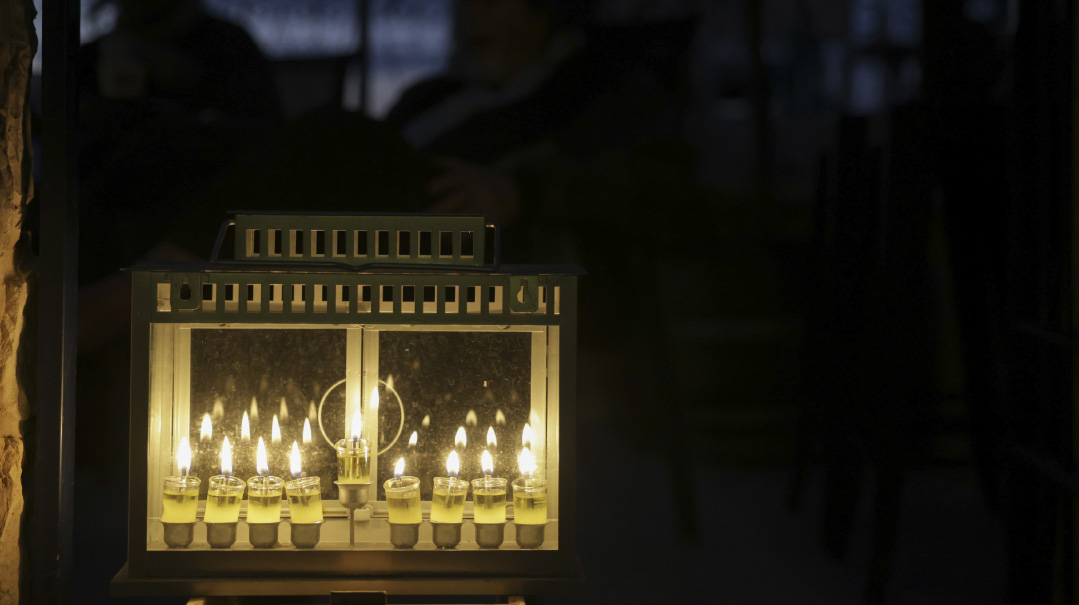The Moment: Issue 1057
| April 8, 2025“Come Elul — the Jewish tax season — you should be spending extra hours in the beis medrash as well!”
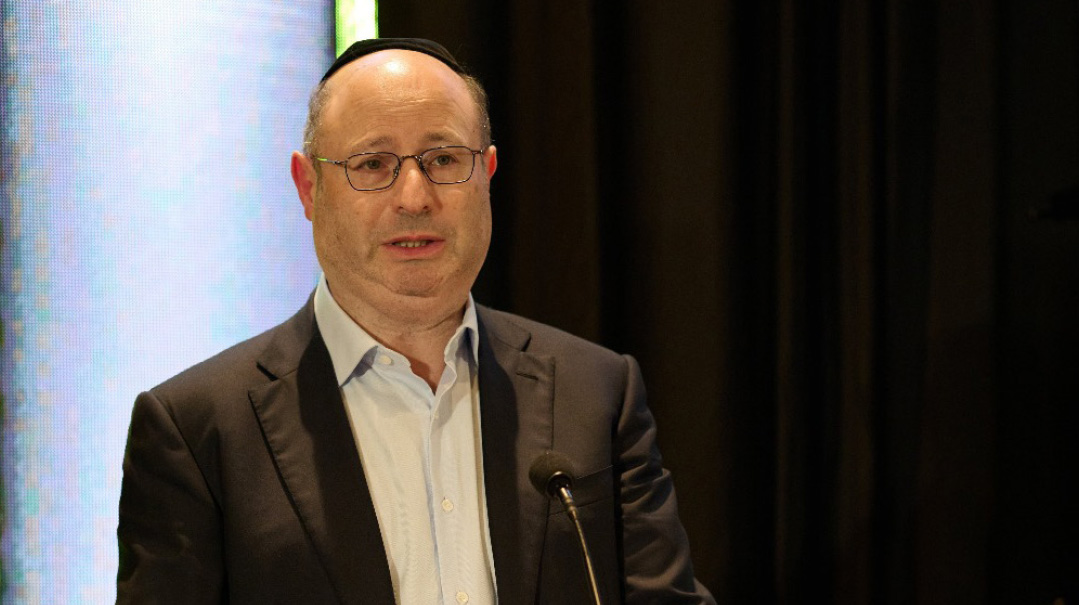
Living Higher
Ralph Herzka addressed the H3 Conference in Florida held earlier this month. As tax season was getting underway, Mr. Herzka recalled another tax season, one in which his rebbi, Rav Shmuel Berenbaum ztz”l, the Mirrer Rosh Yeshivah, was still alive. Mr. Herzka had a chavrusaschaft with Rav Berenbaum, and one day before tax filings were due, Mr. Herzka was still in the office late in the evening poring over spreadsheets when his phone rang. It was Rav Berenbaum, wanting to know where his chavrusa was. Mr. Herzka apologized, explaining that it was tax season, and that he needed to be in the office. “Tax season?” the Rosh Yeshivah asked. “Vos is dos tax season?” Mr. Herzka explained that taxes are due annually on all profits earned the previous financial year, and prior to filing, one has to calculate how much he has to pay. It is a complex task to make an accounting of what revenue was earned, any losses incurred, and to reconcile all the books to make sure everything added up, necessitating the additional hours. Rav Berenbaum probed further. “Is this your busiest month — the month before you file taxes?” he asked. Yes, confirmed Mr. Herzka, April was his busiest. “Ah,” said the Rosh Yeshivah, “if you’re putting in all this extra time the month before you have to give a financial accounting in business, then come Elul — the Jewish tax season — you should be spending extra hours in the beis medrash as well!”
Home of the Free
At a Melaveh Malkah in the Holly Oaks section of Manchester, New Jersey, Rav Aaron Zisow, rav of Beis Medrash D’Manchester, spoke about his great uncle, Rav Moshe Feibusch z”l, a Holocaust survivor who came to Bnei Brak after the war. He began life anew, establishing a large chassidishe Torah family and hosting legendary Pesach Sedarim.
In the most literal kiyum of kol dichfin yeisei v’yeichol — all who are hungry, come and eat — Rav Feibusch would open his Seder to all of Bnei Brak’s Jews who had nowhere else to be. On Pesach night, his modest dining room was packed with widows and orphans, brokenhearted Jews and lighthearted ones, some restless, many hopeless. Guests who may not have had a hot meal or a place to stay all year long were seated grandly and served like royalty by the Feibusch children, on their feet all night long, catering to each guest’s unique needs. Rav Moshe himself would hurry through Maggid, attempting to reach Shulchan Oreich so his guests could enjoy the meal.
One year, a son asked his father, half in jest, long after the Seder had ended, “Tatty, all Seder night, we work hard — when are we going to have a chance to be bnei chorin?”
Rav Feibusch was a calm, happy man, unbroken by the horrors of the camps, but the question made his eyes flash.
“When will you have a chance to be a ben chorin?” he asked incredulously. “The ability to serve others — that is the greatest freedom!”
Happening in… Canada
For Jewish communities throughout Canada, the federal election to be held on April 28 serves as a referendum on basic Torah values and religious freedom. For the past nine years, the Liberal Party held the majority, wielding this power to advance their positions on such issues as abortion, assisted suicide, and gender identity. They have even taken serious steps toward banning shechitah, or at least heavily restricting it.
But perhaps most frightening of all has been the deep-seated apathy toward anti-Semitism, even as it threatens their own citizenry. Throughout the country, Palestinian protests are rampant as the police stand idly by.
On the other side of the ticket is Pierre Poilievre, who espouses staunch conservative values and is an outspoken friend of Israel and the Jewish People.
A lot is on the ballot this April.
Less than two months ago, Ontario held provincial elections. Rav Shlomo Miller, rosh kollel of the Toronto Kollel and one of today’s leading poskim, issued a letter urging the community to vote. In a stunning display of achdus and kevod chachamim, throngs converged on the local election stations, including long lines of bochurim clad in black hats and jackets — as yeshivos were urged to encourage their bochurim to vote as well. The efforts proved fruitful as the Conservative representative for the Ellington-Lawrence riding (where the frum community is located) won by 168 votes.
Now, as the federal election nears, Rav Shlomo Miller was approached with a question. Many guests will be coming from out of town for Pesach. Their only opportunity to vote will be on Chol Hamoed. Is it permissible for them to vote then?
Rav Shlomo ruled that yes, it is permissible, as long as it is done with a shinui (in an unusual manner). He added that it is permissible to drive to the polling stations as well.
Chol Hamoed is that unique blend of kodesh and chol, when we strive for holiness even under a pervasive cloak of mundanity.
In Rav Shlomo’s ruling lay a fundamental lesson into the essence of Chol Hamoed. Until Mashiach comes, we are subject to a government of chol. We must do our best to find the kodesh within.
Happening in… Mishawaka, Indiana
Earlier this month, the South Bend community celebrated the reinstatement of its kollel with an upscale dinner at the event center in Mishawaka, Indiana, within a luxury apartment complex called The Mill at Ironworks. The event itself was an incredible success, with Long Beach rosh yeshivah Rav Chaim Yehoshua Hoberman joining as guest speaker.
More than 150 attendees (big turnout in a community this size) were treated to a delectable dinner, replete with a video shown on the ballroom’s screen.
A special program was held for the women outdoors on the balcony, where they could enjoy the magnificent view.
But only those involved in the preparations understood the true extent of the success. For weeks, they had been searching for a location to host this event, to no avail. Prices were too high, locations too remote, kashrus arrangements too infeasible, and so on.
Then they were told of a beautiful banquet hall in Mishawaka with just the right amount of seating. The venue with all its amenities would cost only $1,000. It sounded too good to be true — but it was real. For that incredible price, they received far more than they had ever anticipated.
But two days later, the extent of the Hashgachah pratis became even more evident. A massive fire broke out at The Mill, destroying dozens of apartments.
We don’t know Hashem’s intentions, but the proximity in time is too uncanny to ignore. Did the great show of kevod haTorah in this specific location save it from complete destruction? While the fire was surely destined to be, perhaps it was postponed for the sake of the Torah’s honor?
We cannot know. But we can assume that two days before the news outlets learned of a destructive fire in Mishawaka — the Heavens shared the news of a fire of eternal warmth in the very same place.
(Originally featured in Mishpacha, Issue 1057)
Oops! We could not locate your form.

